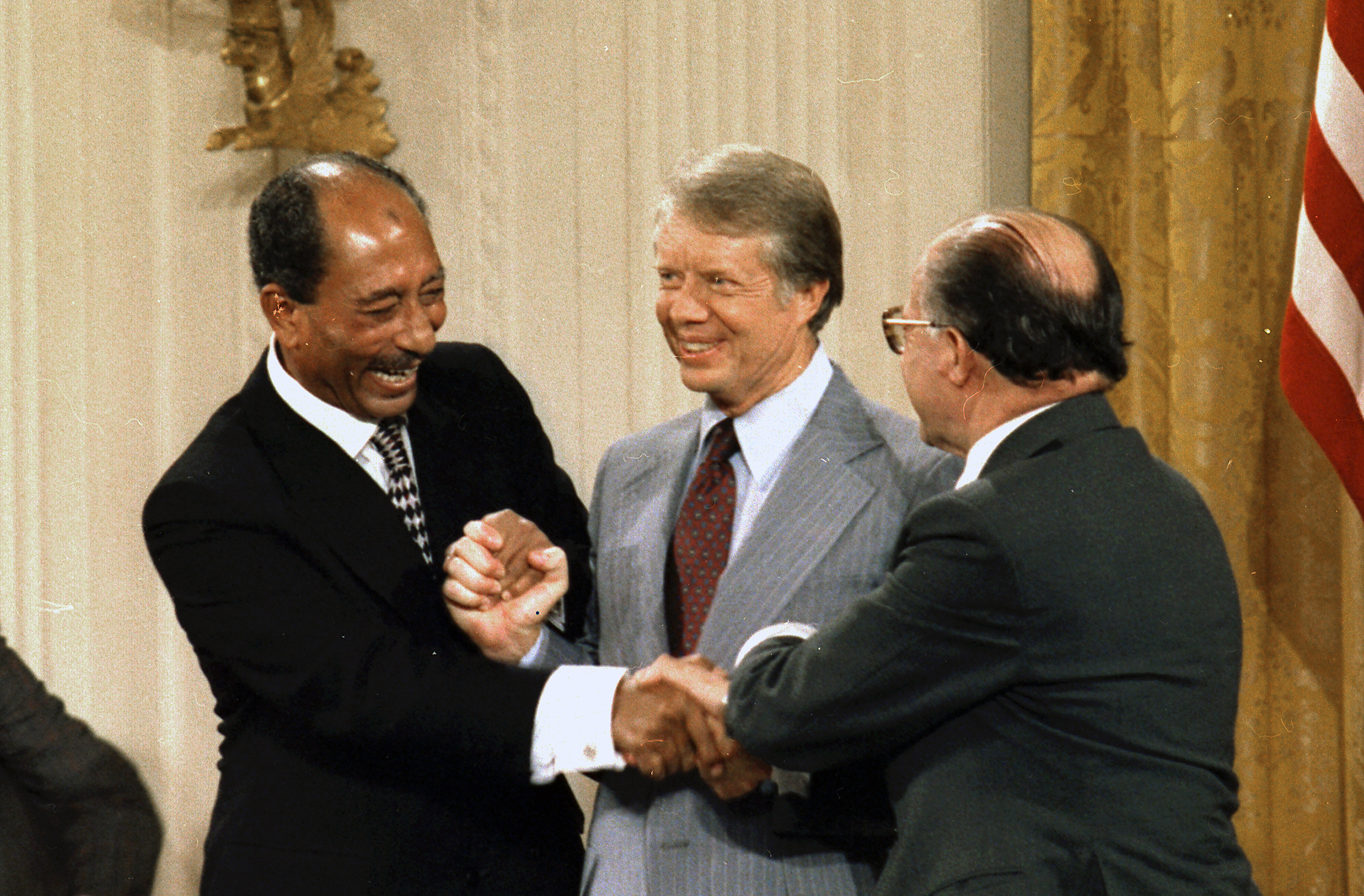Peace Treaties Disregarded as Diplomatic Tool
During war, critics view peace treaties as betrayal, even as forms of treason. Conflicting parties often attempt to exploit the adversary in an all-or-nothing manner, rendering peace treaties unthinkable. Leaders who overcome vengeful sentiments to end wars serve as true statesmen of nations. History provides examples of powerful peace treaties, like the Camp David Accords and the Simla agreement between Pakistan and India, that saved states from further conflict. Unfortunately, in today’s global arena, peace treaties are too often disregarded as impossibilities.

In the midst of a bitter Arab-Israeli conflict, Jimmy Carter, Menachem Begin, and Anwar Sadat convened at Camp David in 1978 to establish a framework for peace that marked a major turning point in the Middle East. The treaty established long-term peace between Egypt and Israel and established an important precedent for future diplomacy in the region. It continues to serve as a model for future comprehensive solutions towards peace in the Middle East.
The Camp David Accords proved their validity following Sadat's assassination and succession by Hosni Mubarak and subsequent leaders. These events caused fear that succeeding leaders might overturn the peace deal due to significant public opposition and to gain more popularity and support. Despite these turbulent developments, Egypt maintained peaceful ties with Israel and maintained its leadership role in the Arab world. Contrary to common belief, the Camp David Accords did not lead to the disintegration of the Arab world’s opposition against Israel; rather, it prevented any further invasion of Israel against Arab territory and stopped a vicious cycle of large-scale wars like the Six-Day War. As President Carter pointed out, Israel and Egypt fought three major wars before the treaty, but since its signing, none have occurred. Furthermore, Begin and Sadat demonstrated to the Arab world that diplomacy and cooperation present a viable path towards resolving the Arab-Israeli conflict, rather than bitter and hostile wars.
Similarly, the Simla Agreement ended a long history of total wars between Pakistan and India. The agreement occurred following the 1971 Indo-Pakistani war, which began over developments in the eastern wing of Pakistan, mainly Kashmir. The performance of Pakistani President Bhutto made it difficult for the government of People's Party to establish good relations with India. However, the Pakistani government took great initiative to make peace with India because it realized the dreadful cost of war. The Simla agreement was a milestone in the history of Indo-Pakistani relations. The agreement laid down the principles to govern future relations between the two nations and envisaged steps to be taken for further normalization of bilateral relations. Thanks to the agreement, the countries could more easily solve their problems during unfavorable situations. Unfortunately, the international community ignores these historic examples. Colombia’s recent refusal of the peace deal between the government and Revolutionary Armed Forces of Colombia (FARC) rebels reflects this trend. Opponents of the treaty failed to realize that rejecting peace for more stringent provisions would only generate more tension and conflict. Rejection of compromise produces detrimental effects. Reflecting on the Arab-Israeli conflict, the true victors were those who compromised instead of fought. Sometimes, it is better to have something than to have nothing at all.
 Wasil is an Egyptian freshman in the School of Foreign Service studying International Politics. He has lived in 9 countries, speaks 5 languages and is the founder of a community service NGO called Clean & Green Egypt. In addition, Wasil writes for his own media outlet named Nile Scope.
Wasil is an Egyptian freshman in the School of Foreign Service studying International Politics. He has lived in 9 countries, speaks 5 languages and is the founder of a community service NGO called Clean & Green Egypt. In addition, Wasil writes for his own media outlet named Nile Scope.
